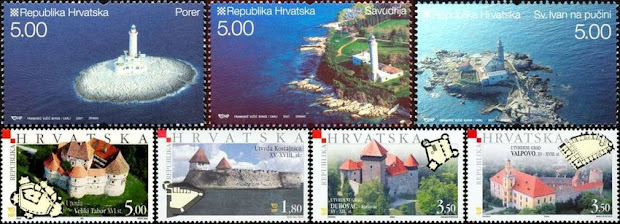The Swedish retail giant IKEA has decided to come to Croatia. Earlier rumours had it that IKEA would build a branch in Zadar or Split, but the company chose a location just south of Zagreb. That makes sense to me. Zagreb has at least three times more inhabitants than Split and Zadar combined. True, the coastal cities attract many more tourists, but they are not coming for IKEA but for the beaches and the Mediterranean feeling.
Croats, however, do travel abroad to go shopping. In fact, there are even special bus services to Graz and Trieste that stop at shopping malls. Graz is a town of the size of Split, but has many shops Croatia does not have: Mediamarkt, H&M and IKEA, to name the most popular.

I once took that bus to Graz. At the end of the day, we gathered at the Opera House where an intimidating number of Croatian buses were waiting to bring us back to Zagreb. When our bus left, the lady in charge - or tour guide, if you like - grabbed the microphone: "We are first! Our bus is ahead of the others!" I was surprised see someone that excited, as Croats cannot be blamed for excessive punctuality. But then it dawned on me that all buses would arrive at the same border crossing and that non-EU buses are subject to severe scrutiny. If you are in the tail of the convoy, you may have to wait for hours and hours.
Upon arriving at the border, the lady told us: "Whatever you bought, don't say to the official that you didn't buy anything at all. Who would be empty-handed after a shopping trip to Graz?" After this useful advice she entered into negotiations with the border officials. After quite some time, she came back into the bus and said with a big smile: "No inspection this time! We can proceed! I think we can applaud for that!"A thunderous applause followed. I felt awkward and moved at the same time.
I guess the bus companies are not happy with IKEA coming to Croatia. Neither are Croatian manufacturers of
furniture. I can see why. They never had to worry much about the price-quality relationship. That goes for many Croatian manufacturers. EU accession might knock a lot a people out of business here. Many Croats avow love for domestic products (domaće) but the lack of alternatives doesn't leave them much choice.

 Milivoj Uzelac's works are imbued with eroticism. Nude women figure prominently in his work; they radiate sensuality and sexuality. His reputation as a womanizer and lover of the female nude grew after the discovery in 2001 of a cycle of erotic drawings in Prague. Some of these will now be presented to the Croatian public for the first time.
Milivoj Uzelac's works are imbued with eroticism. Nude women figure prominently in his work; they radiate sensuality and sexuality. His reputation as a womanizer and lover of the female nude grew after the discovery in 2001 of a cycle of erotic drawings in Prague. Some of these will now be presented to the Croatian public for the first time.










